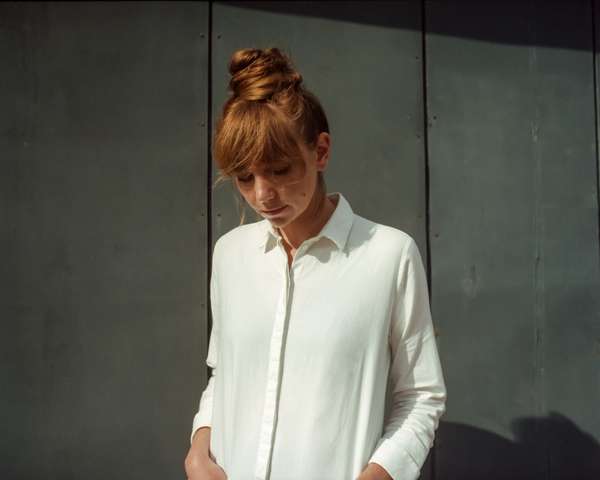Classically trained musician and collaborator of Hidden Orchestra, Poppy Ackroyd, follows the neoclassical path that started off with her debut album, Escapement. In her first full-length Ackroyd was bringing piano and violin on the spotlight and creating tremendous atmospheric music with her melodic ideas. Her collaboration with visual artist Lumen, who created bespoke films for her live performances, led to the release of a DVD in 2014 in 2014. The intriguing part of Ackroyd is her adoration and deep knowledge of keyboards. She actually spent time at the Russell/Mirrey collection of keyboard instruments in Edinburgh where she experimented with different keyboards, ranging from the 16th to the 19th century. And even though her approach on the piano is quite conventional, her use of other instruments in Feathers is quite original. That array of instruments includes harmonium, clavichord, harpsichord and spinet, giving Feathers an extended sonic pallet.
The really astonishing part with Ackroyd in this release is the way she comes up with rhythmic parts for her music, using some quite unconventional methods. The beginning of the opening song is such a moment with Ackroyd tapping on the soundboard, creating the foundation of the track, on top of which her melodies and ambiance would grow. “Timeless” sees her taking the same approach, while the more abstract style of rhythm in “Croft” makes things a bit more interesting, having a bass drum sort of effect to the song. It seems that as the album progresses her approach on the rhythm becomes more and more out of the norm, with the highlight being “Birdwoman.”
On top of all that, Ackroyd creates a rich background to her music with some further alternative additions. The scratching sounds in the opening song enrich the sonic depth of the track, while the percussive sounds in “Salt” share the spotlight alongside the piano. And in a track such as “Roads,” Ackroyd’s comes up with some really cool brushing effects, making the difference for the track.
The manner in which Ackroyd’s songs progress and evolve in Feathers is simply stunning, showcasing her musical aptitude. The repetitive patterns of the melodic lines in “Strata” turn into majestic phrases with an unbelievable fluidity, with the violin having a subtle impact on the song. In a similar way, “Timeless” creates circling melodies to capture your attention, while the powerful phrases soon take a turn for darker paths. The more dreamlike “Salt,” reveals a certain rhythm which makes you feel like the track is directed at you at a personal level. “Salt” ties in perfectly with the title track and its moving concepts, with the song suddenly shifts to a grand sound as the rapid piano lines give an exceptional performance.
The more dramatic start of “Croft” gives a different flavor to Feathers, with the violin giving it that extra push. The song itself evolves to a more upbeat and energetic part, similar to “Roads,” before it retreats to more minimalistic paths near its end. “Taskin” on the other hand comes in with quite a different vibe than the rest of the songs in Feathers, having an almost mysterious aura about it, which ties in perfectly with Ackroyd’s vision for Feathers. Still the closing track of the album, “Birdwoman,” manages to encompass all the different aspects of Ackroyd’s sound, finishing off the album in the most suitable way possible.
The ambiance that Ackroyd is able to build in Feathers and the emotions that the album transmit cannot be ignored. Ackroyd's vision has been extended even further with her sophomore release. You really cannot go wrong with Feathers.







